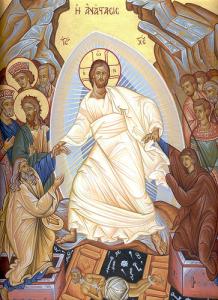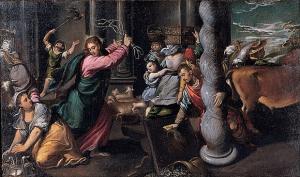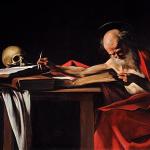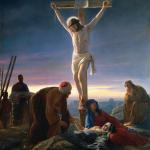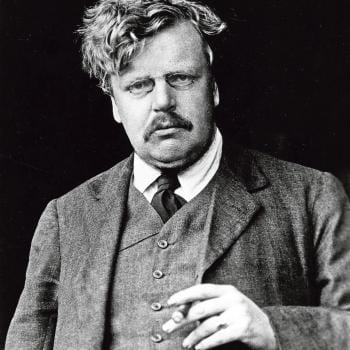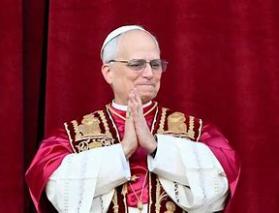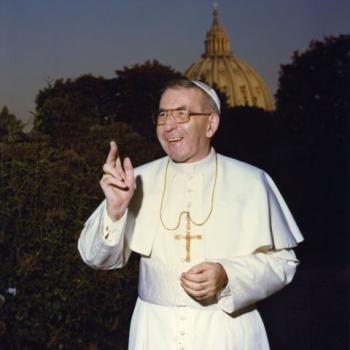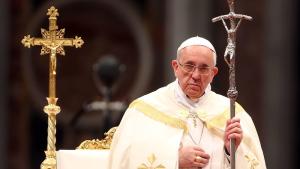
Photo by Long Thiên
Palm Sunday
What is most amazing about the Lord and his Passover? It is the fact that he achieves glory through humiliation. He triumphs by accepting suffering and death, things that we, in our quest for admiration and success, would rather avoid. Jesus – as Saint Paul tells us – “emptied himself… he humbled himself” (Phil 2:7.8). This is the amazing thing: to see the Almighty reduced to nothing. To see the Word who knows all things teach us in silence from the height of the cross. To see the king of kings enthroned on a gibbet. Seeing the God of the universe stripped of everything and crowned with thorns instead of glory. To see the One who is goodness personified, insulted and beaten. Why all this humiliation? Why, Lord, did you wish to endure all this?
Jesus did it for us, to plumb the depths of our human experience, our entire existence, all our evil. To draw near to us and not abandon us in our suffering and our death. To redeem us, to save us. Jesus was lifted high on the cross in order to descend to the abyss of our suffering. He experienced our deepest sorrows: failure, loss of everything, betrayal by a friend, even abandonment by God. By experiencing in the flesh our deepest struggles and conflicts, he redeemed and transformed them. His love draws close to our frailty; it touches the very things of which we are most ashamed. Yet now we know that we are not alone: God is at our side in every affliction, in every fear; no evil, no sin will ever have the final word. God triumphs, but the palm of victory passes through the wood of the cross. For the palm and the cross are inseparable.
Let us ask for the grace to be amazed. A Christian life without amazement becomes drab and dreary. How can we talk about the joy of meeting Jesus, unless we are daily astonished and amazed by his love, which brings us forgiveness and the possibility of a new beginning? When faith no longer experiences amazement, it grows dull: it becomes blind to the wonders of grace; it can no longer taste the Bread of life and hear the Word; it can no longer perceive the beauty of our brothers and sisters and the gift of creation. It has no other course than to take refuge in legalisms, in clericalisms and in all these things that Jesus condemns in chapter 23 of the Gospel of Matthew.
During this Holy Week, let us lift our eyes to the cross, in order to receive the grace of amazement.
HOMILY OF HIS HOLINESS POPE FRANCIS
St Peter’s Basilica
Sunday, 28 March 2021
Palm Sunday (28 March 2021) | Francis (vatican.va)
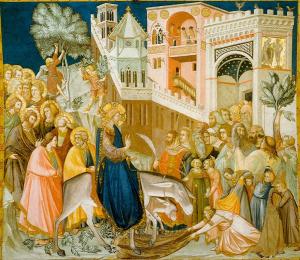
Entry of Jesus Christ into Jerusalem (1320) by Pietro Lorenzetti:
Holy (or Great) Monday
But, we ask — and each one of us can ask ourselves — does the Lord feel at home in my life? Do we allow Him to “cleanse” our hearts and to drive out the idols, those attitudes of cupidity, jealousy, worldliness, envy, hatred, those habits of gossiping and tearing down others. Do I allow Him to cleanse all the behaviours that are against God, against our neighbour, and against ourselves? Each one can answer for him/herself, in the silence of his/her heart: “Do I allow Jesus to make my heart a little cleaner?” “Oh Father, I fear the rod!” But Jesus never strikes. Jesus cleanses with tenderness, mercy, love. Mercy is the His way of cleansing. Let us, each of us, let us allow the Lord to enter with His mercy — not with the whip, no, with His mercy — to cleanse our hearts. With us, Jesus’ whip is His mercy. Let us open to Him the gates so that He will make us a little purer.
Every Eucharist that we celebrate with faith makes us grow as a living temple of the Lord, thanks to the communion with His crucified and risen Body. Jesus recognizes what is in each of us, and knows well our most ardent desires: that of being inhabited by Him, only by Him. Let us allow Him to enter into our lives, into our families, into our hearts. May Mary most holy, the privileged dwelling place of the Son of God, accompany us and sustain us on the Lenten journey, so that we might be able to rediscover the beauty of the encounter with Christ, the only One who frees us and saves us.
POPE FRANCIS
ANGELUS
Saint Peter’s Square
Third Sunday of Lent, 8 March 2015
Angelus, 8 March 2015 | Francis (vatican.va)
Driving of the Merchants From the Temple by Scarsellino (1550 (or 1551) – October 28, 1620)
Holy (or Fig) Tuesday
But Jesus knows that conversion is not easy, and he wants to help us here. He knows that we often repeat the same mistakes and the same sins; that we become discouraged, and perhaps it may seem that our commitment to do good is useless in a world where evil appears to rule. Thus he encourages us with a parable that tells of the patience of God. We must keep in mind God’s patience, the patience he has for us. He offers the comforting image of a fig tree that does not bear fruit during the accorded season, but is not cut down. More time is given to it, another possibility. I like to think that a nice name for God could be “the God of another possibility”: God always gives us another opportunity, always, always. That is what his mercy is like.
This is how the Lord is with us. He does not cut us out of his love. He does not lose heart or tire of offering us his trust again, with tenderness. Brothers and sisters, God believes in us! God trusts us and accompanies us with patience, the patience of God with us. He does not become discouraged, but always instils his hope in us. God is Father and looks after you like a father. As the best of fathers, he does not look at the achievements you have not yet reached, but the fruits you can still bear. He does not keep track of your shortcomings but encourages your potential. He does not dwell on your past, but confidently bets on your future. This is because God is close to us, he is close to us. Let us not forget that the style of God is closeness. He is close with mercy and tenderness. In this way, God accompanies us: with closeness, mercy, and tenderness.
Thus, let us ask the Blessed Virgin Mary to fill us with hope and courage, and kindle in us the desire for conversion.
POPE FRANCIS
ANGELUS
Saint Peter’s Square
Sunday, 20 March 2022
Angelus, 20 March 2022 | Francis (vatican.va)
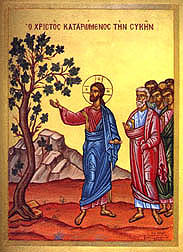
Cursing of the fig tree. (2024, March 20). In Wikipedia.
Miracleofthefig – Cursing of the fig tree – Wikipedia
Holy (or Spy) Wednesday
Holy Wednesday is also called “Spy Wednesday”, the day in which the Church underlines Judas’s betrayal. Judas sells the Master.
One thing that draws my attention is that Jesus never called him a “traitor”; He says that He will be betrayed, but He never called him a “traitor”. He never said: “Go away, traitor!” Never! Rather, He calls him “friend”, and kisses him. The mystery of Judas: what is the mystery of Judas? I do not know…
Fr. Primo Mazzolari explained it better than me…
Side Note: Fr. Primo Mazzolari (January 13, 1890 – April 12, 1959), best known as don Primo, was an Italian priest, a partisan and writer who established the review Adesso (“Now”) in 1949.
Poor Judas. A cross and a tree of a hanged man. Nails and a rope. Try to compare these two ends. You will say to me: “Death is death.” But I would like to ask you which death you would choose: on the cross like Christ, in the hope of Christ, or hanged, desperate, with nothing in front of you?
Forgive me if this evening—which should have been one of intimacy—I have given you such painful things to consider, but I also love Judas, Judas is my brother. I will pray for him also this evening, because I do not judge, I do not condemn. I should judge myself, I should condemn myself. I cannot help but think that even for Judas the mercy of God, this embrace of love, that word friend, which the Lord said to him as Judas betrayed him with a kiss—I cannot imagine that this word did not make its way into his poor heart. And perhaps the last moment, remembering that word and the acceptance of his kiss, Judas too will have felt that the Lord still loved him and received him there among his own. Perhaps as the first Apostle, entering together along with the two thieves. This is a procession that certainly does not seem to do honor to the Son of God as some think of him, but which shows the greatness of his mercy.
Yes, I take comfort in contemplating that capital at Vezelay: how did Judas end up?
-Father Primo Mazzolari, Our Brother Judas Holy Thursday, 1958
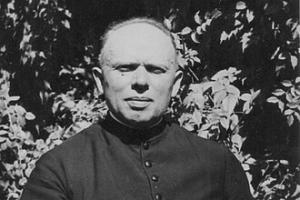
Picture-Wikipedia
Yes, I take comfort in contemplating that capital at Vezelay: how did Judas end up?
Side Note: Francis was referring to a capital in the Basilica of St. Mary Magdalene in Vèzelay in Burgundy, on the way to Santiago de Compostela. The church is a fine example of well-conserved Romanesque architecture, a pilgrimage destination during the Middle Ages, with thousands of people who came to ask for mercy, looking at the example of the woman who had been the first to experience Christ’s deep compassion and was the first to witness his resurrection. At the top of the first capital on the right as you walk in, there us a sculpture few people know about, partly because of where it is: 20 metres from the ground. When seen close up, it is both striking and unsettling. One side depicts Judas hanging, with his tongue sticking out and surrounded by devils. But this is nothing new, there are many depictions of the apostle’s violent and dramatic suicide of the apostle who betrayed Jesus for 30 dinars. The surprise is to be found on the other side of the capital, which shows a man carrying Judas’ boy on his shoulders. This man has a strange expression on his face: half of his mouth communicates concern, while the other half is smiling. The man, a shepherd, is wearing a short tunic. It is the Good Shepherd carrying the lost sheep on his shoulders, the hundredth sheep, for which he left the other 99 behind. The artist has sculpted the scene and monk who inspired it wanted to depict something extreme, suggesting that Judas too was salvation. The Good Shepherd who carries Judas on his shoulders – La Stampa
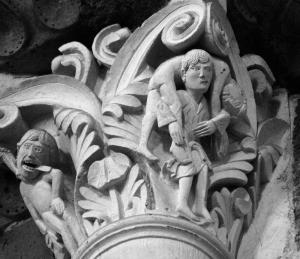
I am not sure. Jesus makes a strong threat, here; he makes a strong threat: “Woe to that man by whom the Son of Man is betrayed. It would be better for that man if he had never been born” (see Mt 26:24). But does this mean that Judas is in Hell? I do not know. I look at the chapiter. And I hear Jesus’s word: “friend”.
But it makes us think of another thing, that is more real, more current: the devil entered Judas, it was the devil who lead him to that point. And how did the story end? The devil is a poor paymaster: he is not a reliable paymaster. He promises everything, shows you everything and in the end leaves you alone in despair to hang yourself.
MORNING MASS IN THE CHAPEL OF THE
DOMUS SANCTAE MARTHAE
HOMILY OF HIS HOLINESS POPE FRANCIS
“Judas, where are you?”
Wednesday, 8 April 2020
Judas, where are you? (8 April 2020) | Francis (vatican.va)
Maundy Thursday
Pope Francis@Pontifex (Apr 6, 2023) Without the Lord’s Spirit, there can be no Christian life. Without his anointing, there can be no holiness. It is fitting that today, on the birthday of the priesthood, we acknowledge that He is at the origin of the ministry, the life and vitality of every Pastor. #HolyThursday
We heard what Jesus did. It is interesting. The Gospel says: “Jesus, knowing that the Father had given all things into his hands”; in other words Jesus had all the power, all of it. And then he begins to perform this gesture of washing feet. It is an act that slaves did at that time, because there was no asphalt on the roads and when people arrived, their feet were dusty; when they arrived at a house for a visit or for lunch, there were slaves who washed their feet. And Jesus makes this gesture: he washes feet. He performs the act of slaves: he who was all powerful, he who was Lord, performs this act of slaves. And then he advises everyone: “You also ought to wash one another’s feet”. That is, serve one another, be brothers in service, not in ambition, as one who dominates others or who oppresses others, no. Be brothers in service. Do you need something, a service? I will do it for you. This is fraternity. Fraternity is humble, always: it is serving. And I will make this gesture — the Church wants the Bishop to do it every year, once a year, at least on Holy Thursday — to imitate Jesus’ gesture and also to do good for himself with the example, because the Bishop is not the most important one, but he should be the greatest servant. And each of us must be servants of others.
This is Jesus’ rule and the rule of the Gospel: the rule of service, not of dominating, of doing harm, of humiliating others. Service!
MASS OF THE LORD’S SUPPER
HOMILY OF HIS HOLINESS POPE FRANCIS
Velletri Correctional Facility (Rome)
Holy Thursday, 18 April 2019
Mass of the Lord’s Supper (18 April 2019) | Francis (vatican.va)
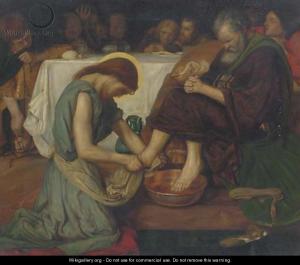
Ford Madox Brown (April 16, 1821 – October 6, 1893)
Good Friday
Pain. Pain is uncertainty, it’s a feeling that takes over. After surgery, when you feel the physical pain from the wound they’ve given you, you ask for anaesthesia, for something to help you tolerate it. But [for] human pain, moral pain, there is no anaesthesia. Only prayer and tears. I am convinced that we are not weeping very well today. We have forgotten how to weep. If I may give some advice, to me and to the people, it is to ask for the gift of tears. And to weep like Peter wept after having betrayed Jesus. When he ran off, he wept when he denied him. He wept. A type of weeping that is not an outburst, no. It is physically-felt shame and, I believe we are lacking this shame. There are many of us who do not feel shame many times – there is an insult used in my homeland “[that person] has no shame” – but the grace of weeping. There is a beautiful prayer, there is a beautiful Mass that asks for the gift of tears. In that Mass, a beautiful prayer goes like this: “Lord, you who made water flow from the rock, grant that tears might flow from the rock of my heart”. The hard heart, the heart that is not moved, does not know how to weep. I ask myself: how many people can weep on seeing the images of war, whatever war? Some yes, I am sure, but many are not able to. They begin to justify or attack. No, this (Editor’s note: the Holy Father points to his heart): you need to cure this. And Jesus touches here. Today, Good Friday, in front of Jesus Crucified, let him touch your heart, let him speak to you with his silence, and with his pain. He speaks to you through those people who are suffering in the world: who suffer from hunger, suffer from war, suffer from such exploitation, and all these things. Let Jesus speak to you and, please, don’t speak. Remain silent. Let him be the one, and ask for the grace of tears.
A SUA IMMAGINE
RAIUNO
“HOPE UNDER SEIGE”
POPE FRANCIS IN CONVERSATION WITH LORENA BIANCHETTI
(Good Friday Special)
Good Friday Special “A Sua Immagine”, RAIUNO (15 April 2022) | Francis (vatican.va)
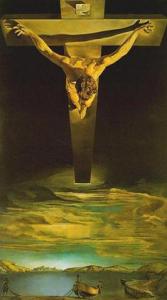
Holy (or Black) Saturday
Holy Saturday is the day of silence: there is a great silence throughout the World; a silence lived by the first disciples in mourning and bewilderment, shocked by Jesus’ ignominious death. While the Word is silent, while Life is in the sepulchre, those who had hoped in him were put to a difficult test, they felt like orphans, perhaps even orphaned by God. This Saturday is also Mary’s day: she too lived it in tears, but her heart was full of faith, full of hope, full of love. The Mother of Jesus had followed her Son along the way of sorrows and remained at the foot of the cross, with her soul pierced. But when it all seemed to be over, she kept watch, she kept vigil, in expectation, maintaining her hope in the promise of God who raises the dead. Thus, in the world’s darkest hour, she became the Mother of believers, the Mother of the Church and the sign of hope. Her witness and her intercession sustain us when the weight of the cross becomes too heavy for each one of us.
In the darkness of Holy Saturday, joy and light will break through with the rites of the Easter Vigil and, in the late evening, the festive hymn of the Hallelujah. It will be the encounter in faith with the Risen Christ, and the joy of Easter will continue for all throughout the following 50 days, until the coming of the Holy Spirit. He who was crucified is risen! All questions and uncertainties, hesitations and fears are dispelled by this revelation. The Risen One gives us the certainty that good always triumphs over evil, that life always conquers death, and that it is not our end to descend lower and lower, from sorrow to sorrow, but rather to rise up high.
POPE FRANCIS
GENERAL AUDIENCE
Library of the Apostolic Palace
Wednesday, 31 March 2021
General Audience of 31 March 2021: Catechesis – The Easter Triduum | Francis (vatican.va)
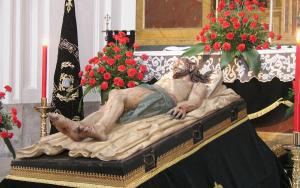
Cristo yacente Gregorio Fernandez- Wikipedia
Easter Sunday
The women at Easter, however, do not stand frozen before the tomb; rather, the Gospel tells us, “they went away quickly from the tomb, fearful yet overjoyed, and ran to announce this to his disciples” (v. 8). They bring the news that will change life and history forever: Christ is risen! (v. 6). At the same time, they remember to convey the Lord’s summons to the disciples to go to Galilee, for there they will see him (cf. v. 7). Let us ask ourselves today, brothers and sisters: what does it mean to go to Galilee? Two things: on the one hand, to leave the enclosure of the Upper Room and go to the land of the Gentiles (cf. Mt 4:15), to come forth from hiding and to open themselves up to mission, to leave fear behind and to set out for the future. On the other hand, and this is very beautiful, to return to the origins, for it was precisely in Galilee that everything began. There the Lord had met and first called the disciples. So, to go to Galilee means to return to the grace of the beginnings, to regain the memory that regenerates hope, the “memory of the future” bestowed on us by the Risen One.
Remember your own Galilee and walk towards it, for it is the “place” where you came to know Jesus personally, where he stopped being just another personage from a distant past, but a living person: not some distant God but the God who is at your side, who more than anyone else knows you and loves you.
The Lord is an expert in rolling back the stones of sin and fear. He wants to illuminate your sacred memory, your most beautiful memory, and to make you relive that first encounter with him. Remember and keep moving forward. Return to him and rediscover the grace of God’s resurrection within you! Return to Galilee. Return to your Galilee.
EASTER VIGIL IN THE HOLY NIGHT OF EASTER
HOMILY OF HIS HOLINESS POPE FRANCIS
St Peter’s Basilica
Holy Saturday, 8 April 2023
Easter Vigil in the Holy Night of Easter (8 April 2023) | Francis (vatican.va)
